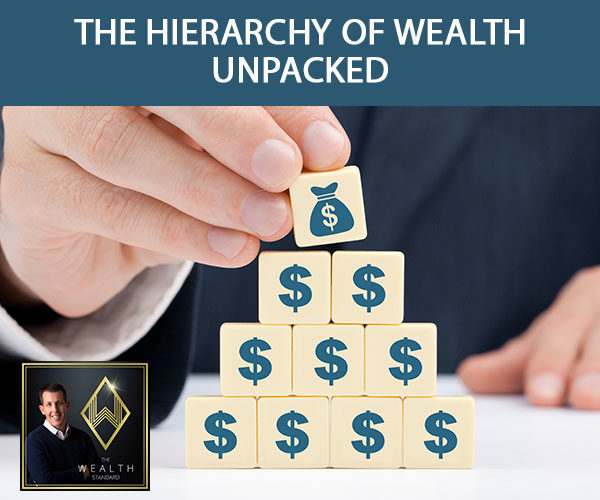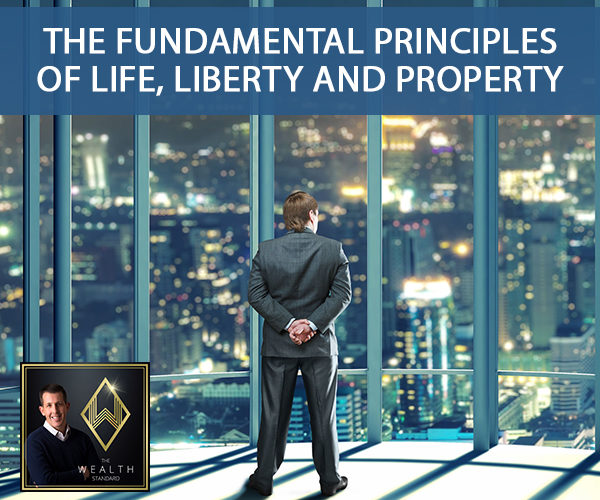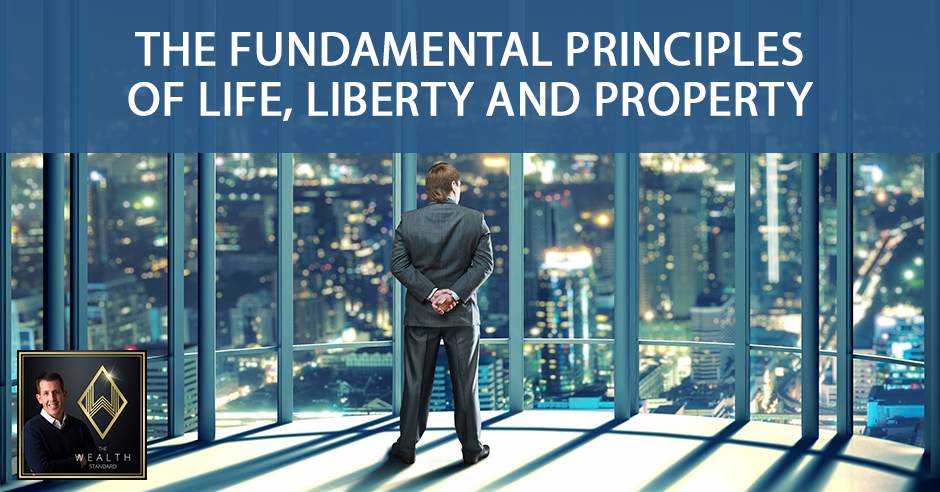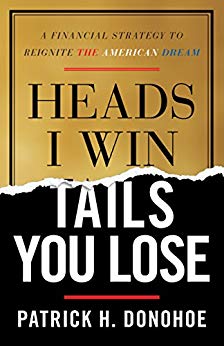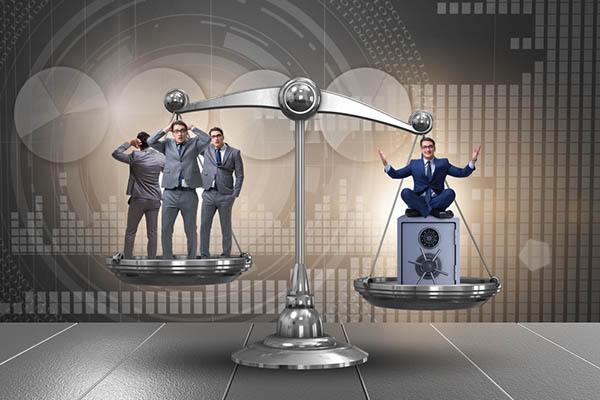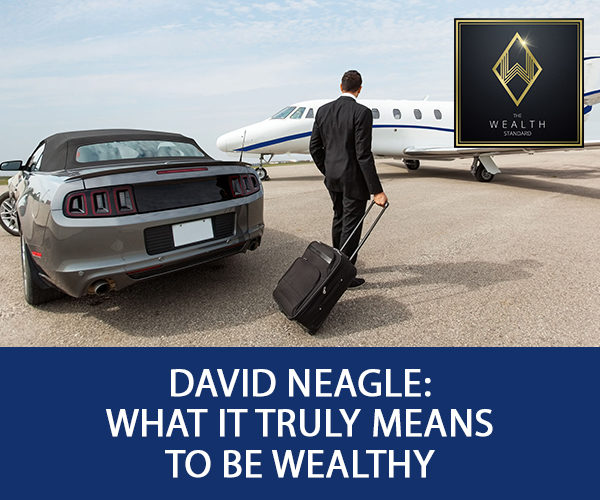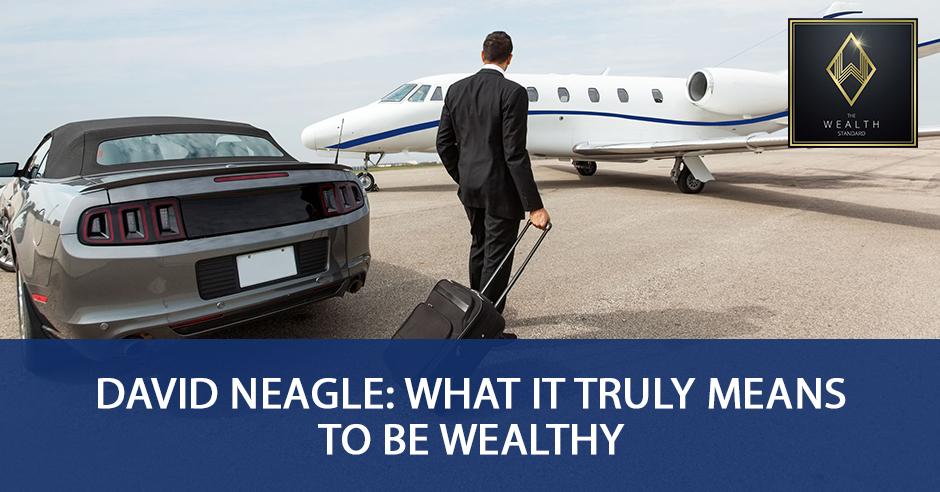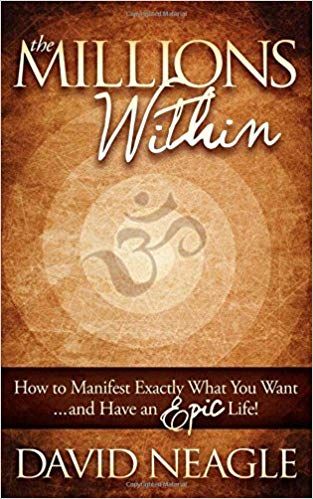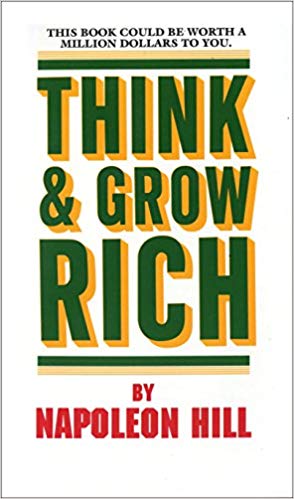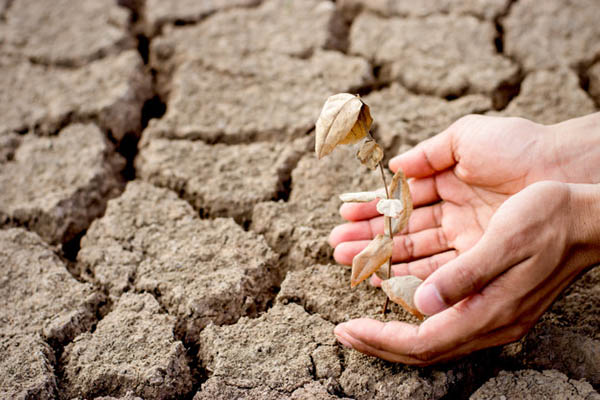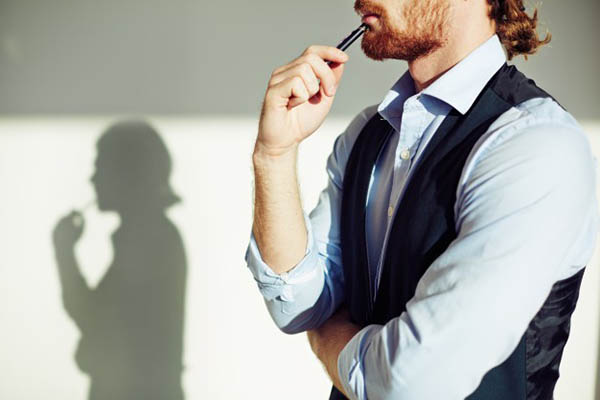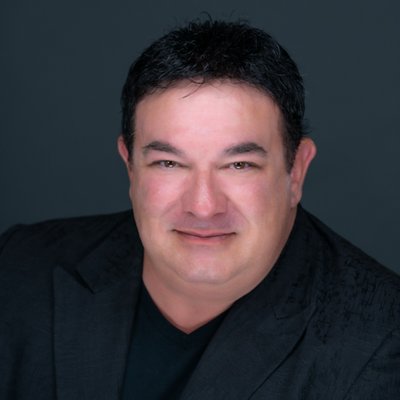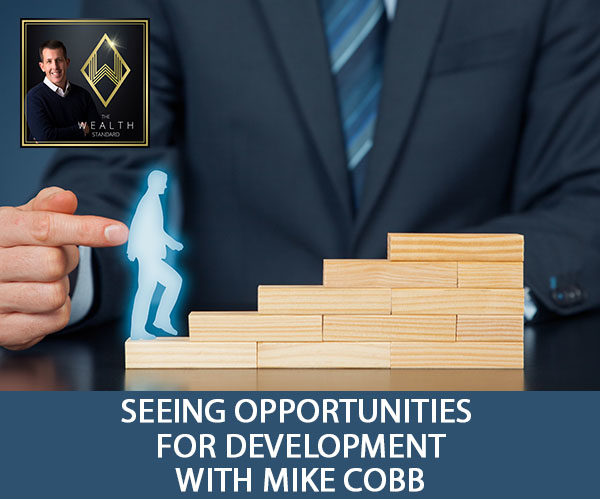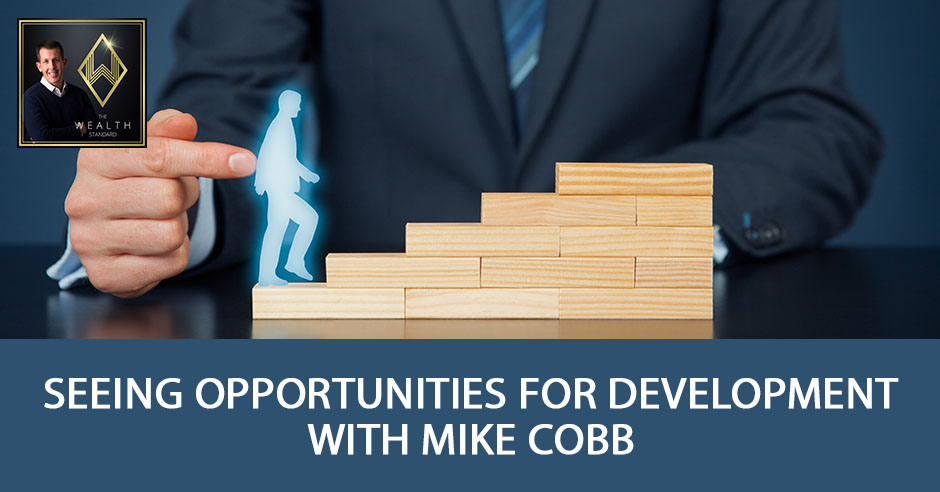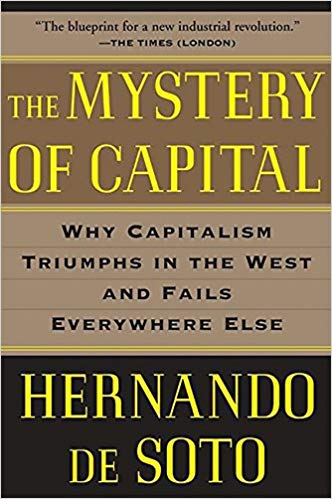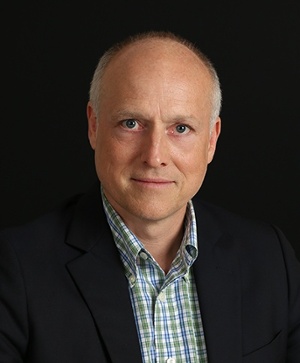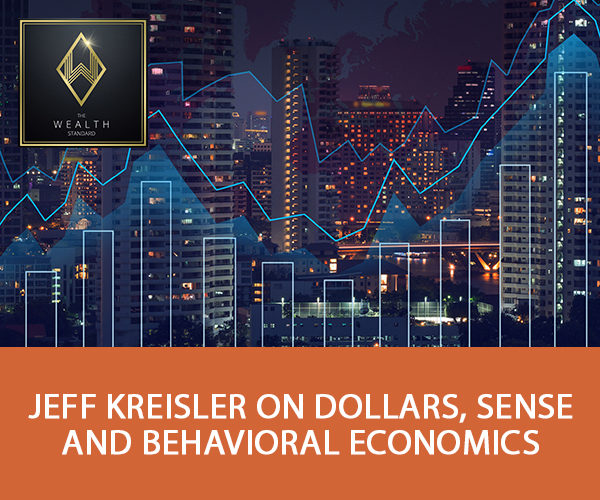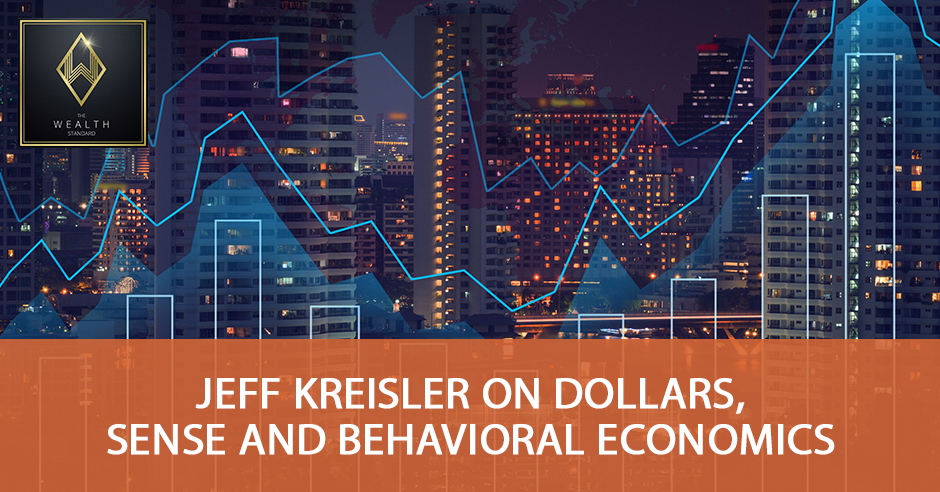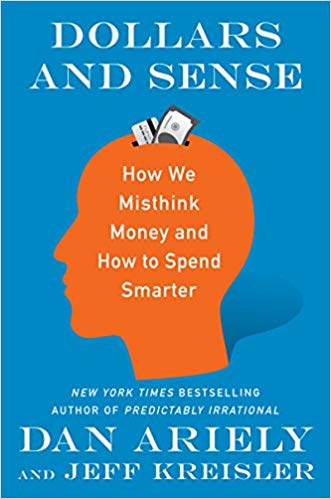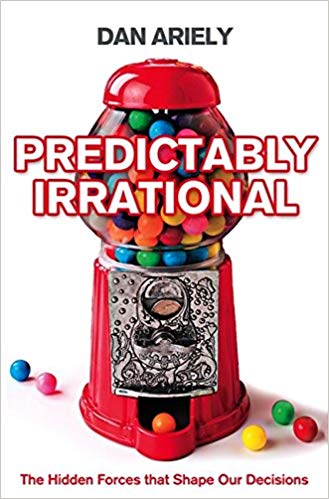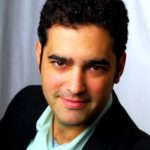The Hierarchy Of Wealth Unpacked
Podcast: Play in new window | Download
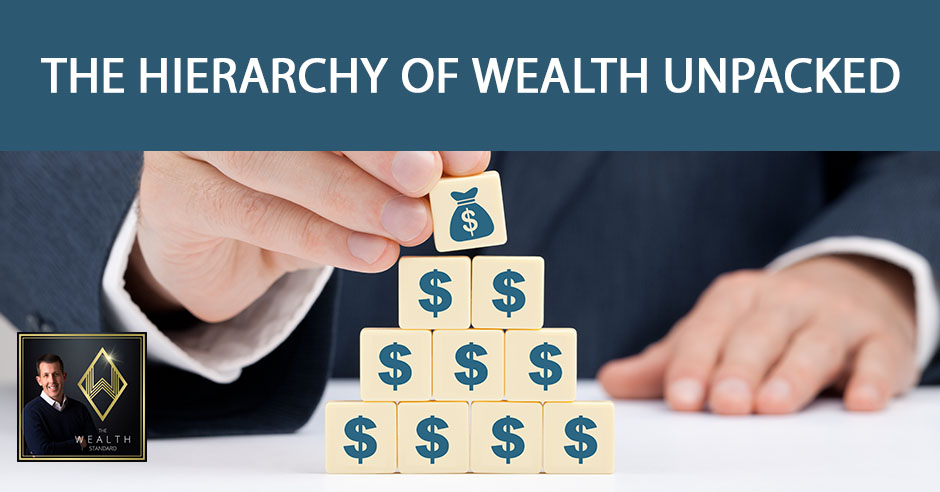
This is a replay of the presentation Patrick gave at 2018 Cash Flow Wealth Summit about the hierarchy of wealth. When you look at the hierarchy of wealth, there is always a starting place which is the foundation. There is a process that you go through step by step. Patrick ranks these different levels or categorizations of wealth based on the degree of control as well as risk. Patrick created The Hierarchy of Wealth to help him as well as the clients that he works within the personal advising space to prioritize investments, financial decisions, and opportunities. Learn this simple model so that you can position certain assets in different places as well as their priority and sequence.
—
Watch the episode here:
Listen to the podcast here:
The Hierarchy Of Wealth Unpacked
Financial Friday
It is an honor to be able to talk about financial strategy with you in the 2019 Financial Fridays season. This is going to be the first episode. Instead of me going into a diatribe of my financial philosophy, I’m going to replay the presentation I gave at the 2018 Cash Flow Wealth Summit. Some of you are familiar with it and some of you may not be familiar with it but for more information, you can go to CashFlowWealthSummit.com. We also have a podcast, the Cash Flow Wealth Show, but I’m going to just introduce the topic that I spoke of in the Cash Flow Summit relating to my financial philosophy. For those of you who have listened to The Wealth Standard for a long time, you probably came to an idea of what my philosophy is in general. When it comes to my financial philosophy, I believe it’s very similar if not the same.
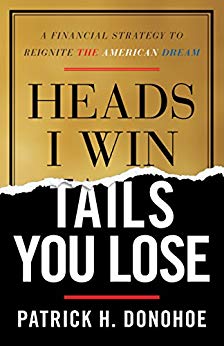
Heads I Win, Tails You Lose: A Financial Strategy to Reignite the American Dream
The presentation is one way in which I like to explain it. I thought this out quite a bit for the book that I came out with, Heads I Win, Tails You Lose: A Financial Strategy to Reignite the American Dream, and it’s what’s called the hierarchy of wealth. The inspiration behind it was the nature of an investment and how investment is evaluated by an individual. I don’t think it’s evaluated in the exact same way. I look at the Maslow’s Hierarchy of Needs as well as the framework in which I built the hierarchy of wealth. Maslow has a hierarchy or a process by which humans meet their needs starting with physiological ending with self-actualization. There’s a number of them in between, but there is a process where you go step-by-step. You don’t necessarily skip steps. I look at the hierarchy of wealth and I believe that there is a starting place which is the foundation.
I ranked these different levels of wealth or categorizations of wealth based on the degree of control as well as risk. There’s a different way of looking at something depending on the person looking at it and that’s where the control on risks come into play. Looking at the hierarchy of wealth, it starts with a foundation of tier one. That tier one has certain characteristics of wealth and a certain percentage of your overall financial strategies that should be in that foundation. Then there’s tier two where you progress to which has a good degree of control and perhaps slightly more risk associated with it. Tier three, which has less control and more risks. Finally, tier four which has very little control, if any control, and very high risk. Looking at the financial strategies, the typical financial plan, it’s an inverted pyramid. People start with the riskiest whether it’s mutual funds or stock market-based investing where they don’t have much control and also take on a tremendous amount of risk as it relates to the performance of their overall strategy. I believe that that is the opposite way to look at it.
You are going to learn quite a bit in this presentation but throughout the Financial Fridays, I’m going to be talking with who I consider experts. Some I know very well and some I don’t know very well. The nature of the questioning is around the financial strategy that is in their business. These are individuals who offer their services to investors and you’re going to see that I take two angles. The first angle is the actual service and product and what they do. What I believe why a business succeeds or fails is the other angle that I take, which is around their business operations. It’s an angle that most people don’t know how to take. It’s the most important because financial failures and investment failures come from the operations and not the product itself. A good example of that is a Wall Street model where they have an incredible business and operational system and a lackluster, poor product that has not performed. I look at why they’ve been so successful. It’s not because of the product and it’s very similar to the McDonald’s and the quality of their hamburger. They’re so successful because of their operations. It’s not because of the quality of their food.
If you look at alternative investments, I believe there are gems in the alternative space whether it’s a rental property or other alternative investments. However, there’s a tremendous risk and that risk may not always be the actual product itself and the offering of the investment. It’s the actual people behind it and their operational structure, their background, and their experience. That tells you a lot about what they will do when it comes to challenges in the economy or challenges with their business, which is an inevitability. I hope you enjoy this first segment of understanding the hierarchy of wealth so that you can figure out the ways in which you position where your wealth is, where your money is allocated, where you focus your attention and your time and what you decide as a pursuit of expertise when it comes to understanding certain investment categories. I hope you enjoy the rest of the season where we’re going to be talking on Fridays about financial strategy.
—
I wanted to acknowledge you for being here and the time you have been willing to invest in listening to what my expertise is. This is what I do outside of being the co-host of the Summit as well as the co-founder. It’s something I’ve dedicated my life to and it does mean a lot to me that you are investing time and you’re investing attention and I don’t take that lightly. Thank you for doing the things that I believe are necessary to accomplishing financial freedom and achieving your goals. Thank you for being here.
My topic is called the hierarchy of wealth. The hierarchy of wealth is something that I created to help me, as well as the clients that I work within the personal advising space, to prioritize investments, financial decisions and opportunities. Priorities are very important because there are so many choices. We’re adding to these choices and adding to the opportunities just based on what you’re learning at the Summit, but where do those opportunities fall in your specific strategy and your specific path to those end goals that you’re seeking? I believe that the hierarchy of wealth is a simple model so that you can position certain assets in different places as well as their priority and in sequence. This is something that I use personally and it’s helped me personally to stay focused. Before I get into the meat of the presentation, I wanted to introduce myself to those of you who may not know who I am.
Priorities are very important because there are so many choices. Click To TweetI am the author of the book Heads I Win, Tails You Lose: A Financial Strategy to Reignite the American Dream. It’s something that took me a couple of years to write and it’s been well-received. It has a lot of my stories and my experiences over the years and also a lot of details in regard to the financial strategies that my firm specializes in. I’m also the host of The Wealth Standard Podcast, which has been out there for years. It started about 2007. Something I love doing is interview a lot of people and talk about things that are of interest to me. The topics range anything from financial strategy to financial products to economic issues and theories to investing and business. I do get into a lot of personal development topics as well. If you haven’t listened to the podcast, I would encourage you to do so. It means a lot to me to support me and it’s something I love doing and I’m passionate about. This is getting into my expertise and my firm. I was honored by Investopedia as one of the Top 100 Most Influential Financial Advisors. It comes down to the influence that we’ve had in the marketplace by putting out what our financial strategies are and how they are benefiting the lives of our clients. I do that through my firm, which is Paradigm Life.
In Paradigm Life, I am the President and CEO. I also still do some personal advising, but we specialize in certain financial strategies that help people achieve financial independence. In addition to that, I’m active on social media. I’m relatively active on social media and I would love to connect with you out there. I share a lot of information and other resources that you may find valuable. Let’s get into the hierarchy of wealth. The hierarchy is something that didn’t necessarily just spawn one morning. It’s a conglomeration of the experiences that I’ve had with individuals and their unique financial situations. We do business with people all over the country and Canada and even outside of the United States. I have had the tremendous privilege to see where people are in their finances, what they’re trying to do, what are some of their challenges, what are some of the things that keep them up at night.
Maslow’s Hierarchy Of Needs
I’ve been able to position certain strategies to help them. In addition to that, I’ve experienced all of the investment opportunities, ideas, and innovations that are out there. It gets confusing sometimes and I get excited about certain things and become unfocused on others, so the hierarchy of wealth is something that helps me. It’s a simple model where you can position and prioritize your wealth building by essentially adding a label to the different opportunities that you have. The model and the pyramid and the word hierarchy was originated from Abraham Maslow and I was participating in a business event and the training was around the Maslow’s Hierarchy of Needs. As I was learning about that psychological model that outlines our instinctive behaviors to pursue the certain thing that’s called human needs, I made a connection between that and finance. What I’ll do first is just explain what the Hierarchy of Needs is for those of you who are unfamiliar with it. Abraham Maslow was a very famous psychologist and this is a very famous model that has been used in a number of publications and a number of contexts. The model essentially illustrates the sequence of needs that we have as human beings and also the order in which we seek those needs.
The first is the foundational level of the pyramid, which is physiological. The physiological is food, shelter and clothing. Ultimately, we seek those instinctively before we seek anything else. Once we have established food, shelter and clothing, we seek to establish safety. That could be the safety of our community, our neighborhood, the country that we live in, the state that we live in. It’s seeking a safe environment. We naturally seek that once we have established our physiological needs. As you’ve established physiological and safety, then once those two are established, the next need that we seek are relationships. Those relationships could be friendships, family or community but also our intimate relationship with a partner. That is something that comes after our basic foundational physiological needs are met and our safety needs are met. We pursue those relationships. Once those three sets of needs are established, the next thing we seek is self-esteem. Our identity, our meaning in the world and our self-concept. There are a number of ways to explain it, but we seek to separate ourselves from others. We seek to magnify who we are and, in our uniqueness, compare to others.
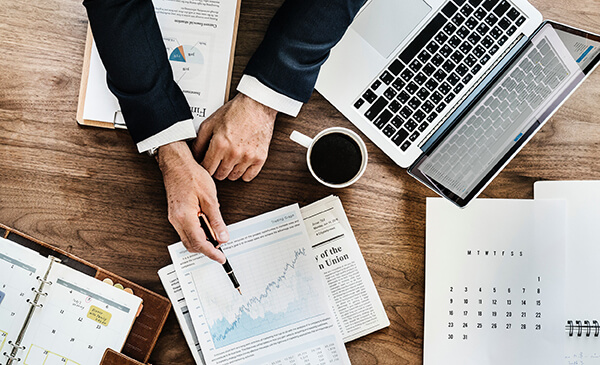
Hierarchy Of Wealth: Financial education and having a financial statement are foundational elements upon which rest all the other investments that you have as well as financial decisions.
The Hierarchy Of Wealth
Once you’ve established all of these others, physiological, safety, relationships, self-esteem, you pursue what Maslow called self-actualization. Self-actualization is pursuing something outside of you. It’s a common altruistic idea where you’re seeking not for personal gain but you’re seeking to provide ultimate value for people. What does this have to do with anything? For me, it is a very famous model that makes sense. I believe as human beings, we like models to create a context for us which we organize, help us understand, give us direction or simplify. What I did is I connect the dots between the Hierarchy of Needs and how to position investments and financial decisions and that’s where we created the hierarchy of wealth. This correlation is important for you to understand and I’ll try to make it as simple as possible. The first arrow going down is control and influence. I’d also say it corresponds to the nature of certainty. If you go to the red side, it is uncertainty and then risks, the probability of loss. The idea is on tier one, tier two, tier there and tier four. These are different types of investment decisions and investments themselves. Financial decision could be considered here.
The bottom tier is where you have the highest degree of certainty and it’s because of an element that you possess or control and influence. The higher up you go, the more risk you take on because of the uncertainty. It’s the categorization of assets. Tier one is your financial foundation. The easy way to explain that is your reserves, your sleep well at night account, the money that’s set aside when things don’t go the way in which you had planned. I would say financial education is a big part of tier one. Insurance, insuring against those events that you may not be able to adequately prepare for. Organization skills, your business and how your business is set up and your overall financial strategy. Having a financial statement is also part of tier one. These are these foundational elements upon which rest all the other investments that you have as well as financial decisions.
Tier two is investments where you have more control and influence. In tier two, you can identify yourself as an asset or something that produces cashflow. I believe we are our number one asset because there is the greatest rate of return based on the money that we put into ourselves whether it’s a financial education or professional education or just maximizing our ability to create value. I’d also say that there are some other investments that would fit in here that have collateral that produces cashflow where you have control and influence. I’m trying to get the general concepts across. Tier three are investments that you have less control over. It’s money that you will give to another person. When you do give money to another person, you have a level of education where you can ask the right questions and you understand what the money is doing. There is cashflow associated with that investment. That investment is where you’re able to ask the right questions, do the right due diligence, understand the mechanics of what is going on and potentially also have collateral associated with it. It’s an actual tangible asset of the underlying investment and the money that you’re putting in.
Tier three is not where you have the ultimate control and influence, but it’s where there are investments that you understand, and you hand your money over to somebody else to make a return. Tier four are assets that you have the least control and influence over and it’s where the highest risks exist. The education that you possess is not adequate to understand the underlying investment. Tier four is where most people have their money. If you were to flip the pyramid around, the typical financial mindset and typical financial plan are to start with your mutual funds and your 401(k) assets that are in something where you just hand your money over to a money manager or an investment bank. You trust that they’re competent enough to make a return for you and give you the end result that you’re looking for way down the road. I don’t think that’s realistic. I think that’s irresponsible. If you look at establishing foundation and building on that foundation, that is how I look at wealth-building. That’s how I have looked at success based on the numerous experiences that I’ve had with individuals and their personal finances.
It's important to establish your foundation first which creates an abundant mindset that allows you to make better decisions. Click To TweetThe Hierarchy Of Wealth Unpacked
It is almost the complete opposite of how we as a society are taught to manage our money and what we’re supposed to do with our money and how to invest. That’s the basics of the hierarchy. I’m going to dive a little bit deeper into the story of how this was created. There was an event back in 2013 that touched me deeply and it helped me start to put some of these elements together. It was an investment conference where I was speaking and a number of Rich Dad’s advisors were speaking. Robert Kiyosaki is the author of Rich Dad Poor Dad. He spoke on our Summit and his wife has also spoken a few times, Kim Kiyosaki. The Rich Dad’s advisors are specialists in a particular field that Robert Kiyosaki has chosen to have as his personal advisors as well as those who have written books underneath his brand. I get Andy Tanner and Tom Wheelwright, the other Cofounders of the Summit. Andy Tanner is one of the co-hosts. they are Rich Dad’s advisors in particular areas and very intelligent and very giving people.
I’ve learned a tremendous amount from all of them but this particular time in 2013 was very simple but I had not connected the dots. This is what I was taught by Ken McElroy, Josh and Lisa Lannon. It came down to a continuum or an order of focus to create the most amount of wealth. It started with producing money as a business. It’s where your business is going to produce the most amount of wealth and cashflow. I would also add to this, it’s not just your business. If you don’t have a business, it doesn’t mean that it’s not going to produce cashflow. It’s the business of you. It’s your ability to educate yourself, figure out ways to be more valuable to others and in return, receive compensation for that value. The idea is to produce as much of this cashflow as possible. Once you’re producing that cashflow, it’s setting aside a certain percentage outside of your lifestyle to capitalize on investment.
If you haven’t read the book Rich Dad Poor Dad, the definition of an asset is something that puts money in your pocket. An asset according to that definition is also producing cashflow. The idea is to build your cashflow to the point where it’s passive. There’s not much time or effort on your part which allows you the mental wherewithal to produce more money as a business or as an individual. Here is where there are infinite possibilities associated with you learning something and being a value to other people. The financial decisions I make and the investments that I position is to be an infrastructure for me to figure out a way to be the most valuable to others. You taking on this mindset, you first have to consider yourself your most valuable asset because you are. Once you have established that belief or that idea, now it’s figuring out ways to educate your assets so that you are more valuable to other people. It’s a model or a continuum that’s simple but it connected so many dots for me.
It doesn’t matter how big your business is or no business. If you’re an established business owner or you’re just out of college in your entry-level job, it doesn’t matter. When you identify yourself as an asset, you figure out ways to maximize it. It requires education but also requires leverage. It requires insights by others, coaching, being in the right environments and these right social groups. There are so many different ways in which you can figure out how to take who you are and be a value to somebody else and have a financial remuneration for that exchange. There’s no barrier to entry to understand yourself as an asset. The equation that you do want to understand is here you are and if you improve your education and education I would say, the definition is to improve your capacity to be valuable to somebody else. Increasing education increases your value and an increase in value gives you more money. There are infinite possibilities there. There’s something you can always work on. As you establish passive cashflow, that enables more of this. Hopefully, I’ve established that point.

Hierarchy Of Wealth: Start to look for opportunities to increase your cashflow to make more money.
I’m going to expand off of that continuum. You have your specific business or the business of you and you produce value, you get money in return and then you make an investment. This is where it comes down to the hierarchy of wealth where you are able to categorize the priority of what you established first, second, third, and fourth. I’m going to break down some of the assets and give you some examples. First, as you are producing cashflow and that you are investing that cashflow, tier one is what gets filled up first. Tier one is assets but they’re also financial decisions. Some of these decisions may not be an investment that is a stereotypical investment or something that puts money in your pocket. It might be an organization. It might be a financial team. Whatever dollar amount allows you to sleep well at night and not have to worry about losing the primary income and having six or twelve months to figure it out, that is some of the most valuable money ever. Getting rid of bad debt, if that’s the situation that you’re in, is a good decision in tier one. Your financial team is important to establish. Asset protection falls there as well as your business structure.
There are numbers of other things that relate to the specific situation of the individual, but this is your foundation. This is a foundation that may not produce any return, but it is a foundation that will ensure that wherever tier two, tier three or tier four investment goes, you are protected. Whereas I see most people when one of these goes wrong, it crashes the entire house of cards. It’s important to establish your foundation first which creates an abundant mindset that allows you to make better decisions to focus more on where your strengths are and how you can use those strengths to produce massive value for others. Establishing that foundation is paramount. This is where my team and I and our expertise falls. We feel and have used it over the test of time in thousands of clients that we’ve worked with, but there is one fundamental tool that should be in your tier one arsenal. It is a specific type of life insurance policy and it is a life insurance policy that isn’t your stereotypical life insurance. It’s a life insurance policy that when you design it, it acts as a growth vehicle that has a liquid cash value as well as a number of other benefits.
As we’re talking about the foundational asset, as you are producing cashflow and you’re filling up your bucket as far as reserves are concerned, we encourage that you systematically save and put aside a certain percentage of your income. That percentage first builds whatever your reserve requirement is in six to twelve months, but then beyond that, is where you start to get into other investments. Even in the six to twelve months of reserves, the account that we encourage which we have defined as the wealth maximization account, which is this specific type of life insurance policy designed in a specific way, meets the criteria of this tier one asset. It’s something that you have control and influence over but it’s also something that you can’t lose. There is a contractual guarantee backed by some of the strongest institutions in the world, but you have a higher amount of interest that’s earned on your reserves. You have a level of protection as well, but you also have the ability to take a loan against the growing value in this account. That is important when it comes to making investments in tier two, tier three and tier four.
The wealth maximization account is something that we designed based on what your situation is. We designed it first to establish the reserves that help you sleep better at night. Once that is established, the money beyond that will become your opportunity fund. The opportunity fund or opportunity amount is what you identify as the amount of money to invest and that investment is going to be in tier two. I’m going to get into something that may seem somewhat complex. The idea of establishing your reserves is paramount than getting into money above and beyond that reserve amount as your opportunity fund. At that point, as you start to acquire tier two investments, it also produces cashflow. As you use the loan provision that is afforded to you by the insurance company, the cashflow from that asset is paying back the loan that was taken to capitalize it. It will keep you disciplined to continually save and be disciplined to payback and then capitalize more investments. Every time you make a loan payment, that money is available to make another investment.
Ask questions based on your expertise or education around an investment instead of blindly giving money to people. Click To TweetAs you establish your reserve amount, the six to twelve months of your comfortable living expenses and you have money that is available that’s above and beyond that which we are calling the opportunity fund, it’s when you start to look for opportunities to increase your cashflow to make more money. This might be first as far as tier two is concerned. These could be personal development type of investments and that’s basically investing in yourself. It could be a certification for the career that you’re in or the profession that you’re in. It could be learning leadership and management skills. It could be to invest in a paid mastermind group. Kyle Wilson, that’s one of his primary businesses is establishing these high-level paid mastermind groups in different parts of the country. These are groups of people that get together. They’re in different professions, different ages, different goals, and different priorities, but they get together and exchange ideas, brainstorm and mastermind so that you can get insight. Have your own board of directors in a sense to gain insight into what your biggest and best opportunities are. If you’re interested in that, pay attention to Kyle.
These are investments that you control and have influence over. It may not be a personal development course. Maybe it is purchasing a property, a property that you hold title to, a property that you control, or a property that you have influence over. If you are a business owner, it also could be to capitalize on hiring somebody or a marketing strategy or ways in which you can improve the cashflow of the business. Tier two assets are vast, but the idea is that as you acquire those, you acquire them by using your opportunity fund which is a loan provided by the insurance company. Once you capitalize it, the discipline over whether that investment is working or not is the cashflow that it’s producing. The loan payback acts as a disciplined way to ensure that it was a worthwhile investment.
I’ve personally analyzed hundreds of different types of investments ranging from real estate investments to commodity type of investments to training investments. I would never say that I’ve heard them all, but I’ve heard about lots of different types of investments. This is where I would say it’s important to realize that it’s all subjective. These aren’t just absolute rules because you may know a certain field better than another field. That may for you be a tier three or tier two investment. For me, it might be tier four investment because I don’t have that background or education. As you’re positioning where your investment opportunities are, a great thing to ask yourself is how much you know about the mechanics of an investment? How much control do you have? How much influence do you have? What’s the liquidity?
If you don’t some of those variables, then it kicks into tier three and you are now asking questions based on your expertise or education around that investment instead of blindly giving money to people. That’s what I would consider a tier four investment. The idea here is to have a way in which you categorize your investments. From a percentage of wealth standpoint, I have broken them down into different ranges as far as how much of your total wealth should be in tier one, tier two, tier three, and tier four. Here are the ranges that I’ve found to be the most successful. Your foundation which is your tier one investment is 30% to 50% of your wealth. Tier two is 30% to 40% of your wealth. Tier three is 10% to 30% and then tier four, I put 0% to 5%. I believe that a focus on just the first three can get you to the point where you have achieved financial freedom in a short period of time, but it’s establishing a foundation and going in the right sequence.

Hierarchy Of Wealth: The hierarchy of wealth is a great way to set the foundation of a context that could give you the direction of what to focus on first.
As this whole ecosystem is working for you. The idea is to focus the financial returns from the investment as a means and as a medium to discover what is truly the best thing that you can do with your time to create value for other people? I would consider that as an infinite type of investment that you should always be focused on. What I wanted to do is to teach you about this in the context of a story. It’s a client that I believe represents the story very well. It’s also a client that is stereotypical of those that we work with and how the concept of the hierarchy of wealth has helped them to be more organized, have more certainty and have more direction associated with their finance.
Paradigm Life
I’d want you to meet John and how we do business at Paradigm Life which is virtually where we don’t meet with people face-to-face in person. We do meet with some, but 95% plus are those that we connect with and do business with virtually. We meet through a video conference and John was one of these relationships. I met John years ago and he was one of those driven guys that were excited about life. Similar to my four-year-old who has an on switch and he has an off switch. He’s on switch is all out all the time and that was like John. He was excited. He was motivated, and he was driven. He was excited about life. At the time, he was in a high paying government job which was difficult for him to leave especially with the carat of a pension that he had now. It was in California but regardless he had put a lot of time into this profession and he wanted to stick it out for a certain period of time where he became invested in his pension.
He had money in the stock market. He had a 401(k) on his pension but he discovered this entrepreneurial drive inside of himself and started to pursue those types of investments. He had a few real estate investments, a couple of single-family homes. He also had a handful of individual mobile homes. His master plan was to leave this particular municipality once he achieved his tenure or his vesting which is twenty years. His dream was to open a hospice franchise for a variety of reasons. I knew a lot of this before I even met John because of the team that I work in and how they do some discovery to see if our services are the right fit for people. I was excited to meet him because of how driven he was and the interactions that took place before I was able to meet with him.
How I usually start my meetings is by asking a very simple question which is, what keeps them up at night? I asked John this question and that’s when he unloaded. He described this drive within him and this frustration that his job was creating to pursue what he wanted to do. He talked about his investment experience and also talked about some of the investment losses that he had. He also went into his time is spread thin where he’s not able to focus because he’s going to conferences and he’s going to events. He had a financial coaching thing he was doing. He had his job and he had his family as well. He started to drop balls and he made some bad decisions with some investments. It started to run up credit cards. He was using credit cards to purchase the mobile homes and the thought that he would be able to get enough cashflow to pay them off before the 0% phase was done which didn’t happen.
How I usually start my meetings is by asking a very simple question which is, what keeps them up at night? Click To TweetHe had his finances all over the place and everything was disorganized. It was keeping him up at night and the level of uncertainty that he had was at an all-time high. As I took his story and then took some of the concerns and challenges that he was facing, I sympathize with him. I had seen those similar financial situations with other people that I’ve met with. This is where I started to explain to him how the hierarchy of wealth worked. It was a model that was so simple that we started to talk about all the different things that he was involved with and it started to place him in those different tiers. We found out that most of what he was doing was in tier three and tier four and it was putting his entire life in jeopardy. The first milestone was to figure out a way with some of his budgeting and cashflow to set aside 10% of what he was currently making into a wealth maximization account. He committed to me to not make any other investments or made investments decisions until he had established his sleep well at night account. We wanted to achieve twelve months of his expenses because it wasn’t just him sleeping well at night, but it was his spouse who was also not sleeping very well at night.
The first order of business was to set aside a systematic way in which John could save into a wealth maximization account. We started to establish reserves at the same time we were paying off some of his high-interest credit card debt which required selling a couple of his properties. One was sold at a loss, but we felt that this was something that made sense because of the high interest that he was paying. Also, the fact that two of the properties were not performing at what he was anticipating. Those are the first couple of priorities. The fourth priority and milestone was to start to establish in his opportunity fund the down payment for that first franchise, but something else occurred during this whole process. It was the fact that with this franchise that he wanted to open up. There was a team involved, a team of experienced nurses and licensed people which he was not. I can’t remember what the minimum number of people was, but it was just under a dozen and John hadn’t had much leadership or management experience. This was one of those overlooked things. Because he didn’t have that background or experience, he was now going to have to rely on those skills which he didn’t have to operate a franchise.
We came to the conclusion that this was something that he should not invest in until that experience or that understanding of leadership and management was in place. The plan was his idea. He found some opportunities within the municipality to do a lateral move which would have put in jeopardy anything that he had established as far as benefits were concerned. It was being over first and the second-year employees to the municipality. It wasn’t a two-year plan. It ended up being a little bit longer than three years, but he established an idea of how to run a team. He started to study management. He started to study leadership. He felt he was adequate at being able to provide a good office environment, a good team and business environment to make this franchise work. That mindset was paramount, and everything changed. His priorities changed, and some other opportunities presented themselves. The idea behind the hierarchy of wealth that it helped to create context and focus of what he had and how that related to what his goals and the things that he wanted to achieve with his life were.
It was an amazing experience for me and for him as well. As I look at John’s situation, your situation and the countless others that I’ve been fortunate to meet with, this is a model that is subjective. It is based on your situation which could be having a lot of money but still not being able to sleep well at night to having no money. The hierarchy of wealth is a great way to set the foundation of a context that could give you the direction of what to focus on first. This is something that I’d love to talk about. I love finance and I love seeing people succeed. I’ve seen a lot of success over the course of my career and it’s something that is inspiring to me personally, but I also see a lot of failures. That failure is preventable and at the same time, there are only so many things that we know. I’ve failed a lot at investing and business as well in the past and I’ve discovered ways in which I can take those lessons and use them to empower me and achieve better things for myself. From a financial perspective, I’m confident that this is a model that could benefit you and can help you. It could allow you to position your investments in a way that gives you a degree of certainty that is part of the mindset of financial freedom and it’s impossible to be financially free without it.
Thank you for being here. I hope that you found value in this. As far as learning more about this mindset, this philosophy, these strategies, the best direction to give you is through the audio and PDF that talks about the hierarchy of wealth as well as the wealth maximization account. There’s a whole study guide that’s online that has dozens of videos in there and you can access it even without the book. You can go to HeadsOrTailsIWin.com and you can register for the study guide and also subscribe to the podcast. This is where I’m always talking about these ideas and talking about the ways in which you can improve your life and finances. I would be honored if you subscribed. Thank you so much for spending this time and for investing in yourself. I wish you the best when it comes to your investing and on your road to financial freedom. I hope to hear from you soon or at least hear about your success. Thank you.
Important Links:
- CashFlowWealthSummit.com
- Cash Flow Wealth Show
- Heads I Win, Tails You Lose: A Financial Strategy to Reignite the American Dream
- The Wealth Standard Podcast
- Paradigm Life
- Rich Dad Poor Dad
- https://ParadigmLife.net/
- https://HeadsOrTailsIWin.com/
- http://CashFlowWealthSummit.com/
- https://www.Amazon.com/gp/product/1544510845/ref=dbs_a_def_rwt_bibl_vppi_i0

